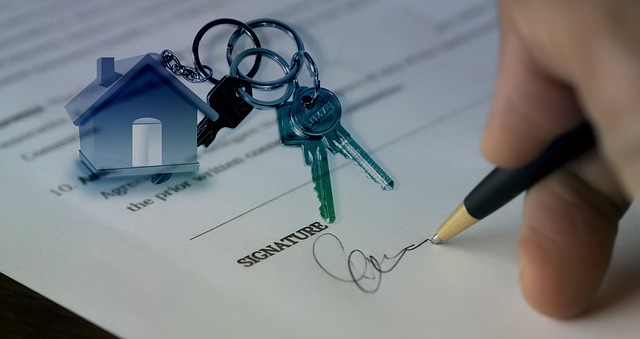Introduction: Why Getting It Right Matters
Buying a home is more than just a milestone—it’s a major financial decision that affects nearly every part of your life. And while it can be exciting, it’s also full of ways to go disastrously off course if you’re not prepared.
Why This Matters
- For most people, a home will be the biggest purchase they ever make.
- Even one mistake—big or small—can cost thousands.
- Missteps can lead to long-term regret, financial strain, or a home that doesn’t suit your needs.
The Good News
You don’t need to become a real estate expert to avoid major pitfalls. What you do need is:
- A clear understanding of the most common mistakes buyers make
- Practical tips to help you plan better and act smarter
- Awareness of how emotions can mislead you during the process
What You’ll Learn
This guide is designed to help you dodge the most common buyer traps—from skipping mortgage pre-approval to underestimating true monthly costs.
Let’s break down what to avoid, so you can make your home-buying journey a successful one.
Mistake #1: Skipping Pre-Approval
Buying a home without mortgage pre-approval is like walking into a store with no idea how much money’s in your wallet. Emotion takes the wheel fast—you see the perfect kitchen, the dream backyard, and suddenly you’re mentally moved in. Problem is, your budget might not back you up. This is how people end up bidding on homes they can’t afford or get crushed later by denial letters and cold reality.
Pre-approval flips the script. It tells you exactly what you can spend, which keeps your search grounded. It also gives you an edge when you’re ready to make an offer. In competitive markets, sellers take pre-approved buyers more seriously—it shows you’re not just dreaming, you’re ready to deal.
Plus, getting pre-approved early flags any issues—credit errors, income gaps, hidden debts—before they spiral into delays. It’s not just paperwork; it’s a strategy move. You’re walking in with clarity, leverage, and fewer surprises. Pre-approval doesn’t just streamline buying—it keeps your feet on solid ground from day one.
Mistake #2: Ignoring the Total Cost of Ownership
Too many homebuyers focus entirely on the down payment. Yes, it’s a big chunk of cash, but it’s just one piece of the puzzle. The real cost of owning a home shows up month after month—and that’s where people get caught off guard.
Start with the obvious: property taxes and homeowner’s insurance. These vary by location, and they’re not optional. Then add maintenance, because something always breaks. Gutters clog, HVACs die, lawns don’t mow themselves. If you’re buying into a condo or planned development, expect HOA fees on top of everything else. Some cover landscaping. Others just poke a hole in your wallet.
Before buying, do some rough math. Calculate your full monthly cost—not just your mortgage principal and interest. Factor in taxes, insurance, HOA dues (if applicable), and set aside a buffer for repairs. Don’t rely on what a bank says you can get approved for. Lenders look at your debt-to-income ratio. They don’t know if you like to travel, have a kid starting daycare, or fund your own side hustle.
Bottom line: Affordability is personal. Plan for the whole picture, not just the upfront deal.
Mistake #3: Falling in Love Too Fast
The Danger of Emotional Buying
When shopping for a home, it’s easy to picture yourself living in a space and get emotionally attached. However, letting emotions drive the decision can cloud your judgment and lead to costly oversights.
- Emotional buyers may overlook glaring issues
- Acting too quickly increases the risk of buyer’s remorse
- You may end up compromising on must-haves
Take Time to Compare Homes
One of the smartest moves you can make as a buyer is to see multiple houses before jumping in. This gives you critical insight and context for your decision.
- Viewing different properties highlights what really matters to you
- You’ll gain negotiation leverage by not appearing desperate
- Price, layout, condition—comparison helps you evaluate fairly
Don’t Judge a Home by Its Paint Job
Cosmetic upgrades like new paint, trendy lighting, or staged furniture can distract from deeper issues. Look beyond surface-level charm.
- Check for signs of water damage, uneven floors, or mold
- Ask about the age of the roof, HVAC system, and plumbing
- A home in perfect style may still need thousands in repairs
Tip: Bring a checklist to every showing and take photos. Don’t rush decisions—let logic guide your love for the home.
Mistake #4: Not Researching the Neighborhood
You can fall in love with the perfect house—then hate everything outside it. A dream kitchen won’t help if your sleep’s wrecked by traffic or your kids don’t have a decent school nearby. The truth is, location can make or break your day-to-day life.
Before you buy, zoom out. Research school ratings, crime stats, traffic patterns, and public transport. Is that quiet street still peaceful during rush hour or weekends? What’s being built nearby in five years—another park or a giant shopping mall? Local development plans can seriously shift a neighborhood’s vibe.
Best move? Go beyond the listing. Visit the area at different times—early morning, midweek evenings, weekend afternoons. Get a feel for noise levels, foot traffic, and overall atmosphere. Because a good house in the wrong place is still a bad investment.
Mistake #5: Waiving the Home Inspection
Skipping the home inspection might feel like a shortcut to smooth out a deal, but it’s one of the riskiest bets a buyer can make. What you don’t see can hurt you—bad wiring, roof leaks, foundation cracks, plumbing on the brink. These aren’t just annoying surprises. They’re expensive fixes that can turn your dream house into a wallet-eating nightmare.
A proper inspection should dig into the bones of the property. Think foundation integrity, roofing condition, electrical systems, HVAC, plumbing, drainage, and any signs of water damage or mold. Some inspectors even use thermal cameras or moisture meters—tools designed to spot what your eyes can’t.
Smart buyers use that inspection report as more than just a checklist. It’s a negotiation weapon. Major issues? You now have leverage to ask for repairs, request credits, or even walk if the seller won’t budge. It’s not about being picky—it’s about protecting your investment.
Bottom line: pay for a solid inspection up front or pay for surprise repairs later. One way buys peace of mind. The other buys problems you didn’t sign up for.
Mistake #6: Stretching Beyond Your Budget
Just because the bank says you can afford it doesn’t mean you should actually buy it. That top-end pre-approval number may look tempting on paper, but it rarely accounts for real life—like emergency expenses, kids, or the occasional vacation. When you stretch that far, the tradeoff usually isn’t worth it. You’re not just buying a bigger house—you’re signing up for years of smaller choices: skipping dinners out, delaying car repairs, saying no to weekend trips.
Over time, those lifestyle cuts wear you down. It’s a slow burn that can quietly wreck your financial health and peace of mind. The smarter play? Buy for comfort, not for clout. Focus on a house that fits your actual life—not your inflated online version of it. You don’t need granite countertops and a three-car garage if it means living paycheck to paycheck.
A more modest home with some financial breathing room beats status any day. That buffer isn’t just smarter—it’s freedom.
Mistake #7: Not Working With a Trusted Agent
A good real estate agent isn’t just a middleman—they’re your buffer, guide, and advocate in a high-stakes game. First-time buyers often underestimate how complex the buying process is until something goes sideways. A solid agent helps you see around corners.
The right agent has local experience. They know the nuances of neighborhoods, market timing, and the difference between a fair price and a tough negotiation. Communication is non-negotiable. You want someone who keeps you looped in, answers questions fast, and doesn’t sugarcoat the hard stuff. Transparency matters too—no hidden agendas or pushy tactics.
When it comes time to make an offer, a trusted agent fights for your interests, not their commission. They’ll spot red flags in contracts, recommend smart contingencies, handle the negotiation pressure, and keep your deal from falling apart before closing. In short, they make sure you don’t get blindsided. And in this market, that can mean the difference between a good investment and an expensive lesson.
Final Thoughts: Buy Smart, Live Better
Use Knowledge as Your Biggest Asset
When it comes to buying a home, what you know can make all the difference. Being well-informed equips you to navigate the process with confidence, ask the right questions, and avoid costly missteps along the way.
- Understand each step before you take it
- Know what red flags to look for
- Stay proactive, not reactive
Mistakes Cost More Than Money
It’s not just your bank account on the line—it’s your lifestyle, peace of mind, and future security. Most home buying mistakes are preventable if you know what to look out for.
Avoiding common pitfalls doesn’t just protect your wallet:
- It reduces stress during negotiations and closing
- Helps you feel more confident in your decisions
- Sets a stable foundation for long-term homeownership
Get Empowered With the Right Resources
If you’re ready to dive deeper into smarter home buying strategies, the tools are out there. Arm yourself with the right information and make decisions that support your goals.
For more tips, checklists, and in-depth guides, visit: https://housezonespot.com/
Stay prepared, stay informed—and you’ll buy a home you’ll truly love.


 Gregory Martindalerons is a dedicated technology author at HouseZoneSpot bringing readers the latest updates on home automation, AI integration, and futuristic living solutions. His clear and engaging approach helps readers stay ahead in the evolving world of smart technology.
Gregory Martindalerons is a dedicated technology author at HouseZoneSpot bringing readers the latest updates on home automation, AI integration, and futuristic living solutions. His clear and engaging approach helps readers stay ahead in the evolving world of smart technology.

